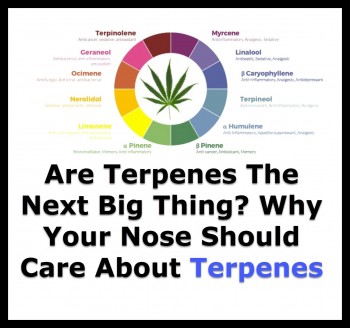
Life Time Cannabis Use not Associated with later IQ Decline (Study)
"Your brain on drugs!" How many times have we heard this phrase, accompanied by the infamous image of an egg frying in a pan? The mantra that "smoking weed kills your brain cells" has been driven into our collective consciousness for decades, repeated by well-meaning parents, teachers, and authority figures alike. It's not their fault – they were simply passing along what they believed to be scientific truth.
However, reality paints a different picture. Some of our greatest minds have been cannabis enthusiasts. Carl Sagan, the legendary astrophysicist and science communicator, was a passionate advocate for cannabis. Steve Jobs credited his cannabis experiences as highly influential to his creative process. Even Shakespeare may have sparked up a bowl or two, with traces of cannabis found in pipes excavated from his garden. Today, countless professionals, from Silicon Valley engineers to medical researchers, incorporate cannabis into their lives while maintaining razor-sharp cognitive abilities.
Now, I'm not suggesting cannabis is completely harmless – everything we consume carries potential risks. Even drinking too much water can lead to hyponatremia, a potentially fatal condition. The key lies in understanding real versus perceived risks, separating fact from fiction, and making informed decisions based on evidence rather than fear-mongering.
The notion that smoking cannabis inevitably leads to lower IQ has been repeated so often it's taken on a life of its own. But what does the science actually say? A fascinating new study from Denmark, following over 5,000 men across four decades, has not only challenged this assumption but turned it on its head. Surprisingly, the research suggests that cannabis users experienced less cognitive decline over time compared to their non-using counterparts.
Let's take a deep dive into this groundbreaking research and examine what it means for our understanding of cannabis's long-term effects on cognitive function. Buckle up, fellow cannabis enthusiasts and skeptics alike – you might be surprised by what the data reveals about your favorite herb's relationship with your gray matter.
A Closer Look at the Study
The Danish study, published in the journal Brain and Behavior, tracked an impressive cohort of 5,162 men over more than four decades. What makes this research particularly compelling is its longitudinal nature – participants' IQs were first assessed in early adulthood (average age 22) and then again in late midlife (average age 62). This extensive time frame provides a robust window into the long-term cognitive effects of cannabis use.
The findings were eye-opening. Not only did cannabis users fail to show increased cognitive decline, but they actually demonstrated "significantly less cognitive decline" compared to non-users. While the average cognitive decline across all participants was 6.2 IQ points over the 44-year period, cannabis users showed 1.3 fewer IQ points of decline than non-users – even after controlling for potential confounding factors.
"Among cannabis users, no significant associations with age-related cognitive decline could be demonstrated for age of initiation of cannabis use," the researchers noted. This is particularly interesting because it challenges the common assumption that early cannabis use is especially harmful to cognitive development.
These results don't stand alone. A British study of over 2,000 teenagers found no link between cannabis use before age 15 and lower IQ scores once confounding factors were controlled for. Similarly, studies of adolescent twins have consistently failed to demonstrate any causal relationship between cannabis use and cognitive decline. A recent review in JAMA Psychiatry even concluded that any cognitive deficits associated with cannabis use typically disappear after 72 hours of abstinence.
The importance of longitudinal studies like these cannot be overstated. Unlike short-term studies that might capture temporary effects, these long-term investigations reveal the true trajectory of cognitive function over time. They also allow researchers to control for various life factors that might influence cognitive performance.
Interestingly, these findings stand in stark contrast to similar longitudinal research on alcohol consumption. A Swedish study of 49,321 males found that lower IQ scores were associated with higher alcohol consumption, both in terms of total intake and binge drinking patterns. Even more telling, lower adolescent IQ scores predicted moderate to high alcohol consumption in middle age. The research showed an increased odds ratio of 1.20 for every step decrease on the IQ scale for being a high consumer versus a light consumer of alcohol.
This comparison raises some fascinating questions. While alcohol use shows a clear negative correlation with IQ scores, cannabis use appears to have no such relationship – and might even be associated with better cognitive preservation over time. Could this suggest that the societal stigma against cannabis has been misplaced, while the risks of alcohol have been underappreciated?
Of course, correlation doesn't equal causation, and more research is needed to fully understand these relationships. However, these findings strongly suggest that the traditional narrative about cannabis "killing brain cells" or causing inevitable cognitive decline needs serious revision. As NORML's Deputy Director Paul Armentano noted, "These results contradict one of the more prominent and longstanding stereotypes about cannabis and cannabis consumers."
Why does this matter?
While it's certainly reassuring to know that your weekend wake-and-bake sessions aren't turning your brain to scrambled eggs, these findings carry far more weight than mere personal validation. Studies like these serve as cornerstones in policy-making, with lawmakers frequently citing scientific research to justify their positions on cannabis legislation.
The relationship between research and policy is precisely why we should scrutinize who funds these studies and to what end. Major corporations routinely pour billions into research designed to support their interests – just look at how tobacco companies spent decades funding studies that downplayed or denied the links between smoking and cancer. Similar tactics were employed by fossil fuel companies regarding climate change, and pharmaceutical companies concerning the addictiveness of opioids.
This Danish study adds another significant weight to the scale of cannabis liberation, tipping it further toward societal acceptance and integration. We've been battling a tsunami of misinformation since the 1930s, when Harry Anslinger first orchestrated his racially-motivated campaign against "marijuana." Remember Dr. Robert Heath's infamous monkey studies? The ones where he essentially suffocated primates with cannabis smoke and then blamed their brain damage on the plant itself? This kind of pseudo-science has been the cornerstone of prohibition for generations.
The government's bias becomes glaringly apparent when you examine their research funding patterns. For decades, an astounding 90% of all government-funded cannabis research has focused exclusively on finding potential harms and dangers. This isn't scientific inquiry – it's a witch hunt with a lab coat. Less than 10% of research funding was allocated to exploring therapeutic benefits or industrial applications, despite hemp's remarkable versatility and cannabis's documented medicinal properties.
But here's the beautiful irony – despite this coordinated campaign of suppression and misinformation, truth has a way of breaking through like a persistent cannabis plant growing through cracks in the concrete. Each new legitimate study that debunks these old myths serves as another crack in the foundation of prohibition.
The Danish study isn't just about IQ scores or cognitive decline. It represents another victory in the larger battle for truth in cannabis science. It stands alongside other research that has already debunked claims about cannabis being a "gateway drug," causing lung cancer, or leading to widespread social decay. Each of these evidence-based refutations chips away at the edifice of prohibition built on decades of deliberate misinformation.
Policy is ultimately a matter of perspective, shaped by the information we choose to acknowledge and act upon. While the unholy alliance of government agencies and private interests has long tried to maintain cannabis prohibition through selective research and fear-mongering, their narrative is crumbling in the face of objective scientific inquiry. The truth about cannabis is finally emerging, not because the powers-that-be want it to, but because it's becoming too obvious to suppress any longer.
The Sticky Bottom Line
I think it's time we put the "cannabis kills brain cells" myth in the same dustbin as Reefer Madness and gateway drug theory. Not only does cannabis not turn your gray matter into Swiss cheese, but this latest research suggests that cannabis users might actually maintain their cognitive function better over time than their non-using counterparts. Who would have thought that decades of government propaganda might have gotten it completely backwards?
But here's the thing – we shouldn't even need these kinds of studies to justify cannabis use. The fact that we're still debating whether cannabis makes you "dumb" while alcohol – a substance that demonstrably destroys brain tissue, leads to violent behavior, and kills thousands annually – remains socially acceptable and celebrated is a testament to the power of cultural programming and corporate interests.
Let's be real: cannabis is objectively less harmful than alcohol by virtually every metric we can measure. It's less addictive, you can't fatally overdose on it, it doesn't generally lead to violence or risky behavior, and now we know it doesn't turn your brain to mush either. Yet somehow, in much of the world, you're still considered a criminal if you prefer a joint to a martini.
While this Danish study adds another brick to the wall of evidence supporting cannabis liberation, the real issue isn't about proving cannabis is safe – it's about recognizing our fundamental right to cognitive liberty. The right to decide what substances we use to alter our consciousness should be a basic human freedom, not something we need to justify with IQ scores and brain scans.
Still, in a world where policy decisions are supposedly based on scientific evidence, every study that chips away at the edifice of prohibition brings us one step closer to full cannabis liberation. Let's hope this research helps accelerate that process. After all, it doesn't take a genius to figure out that cannabis prohibition has always been more about control than public health – and now we have the IQ points to prove it.
INSPIRATION:
https://norml.org/blog/2024/11/15/study-cannabis-use-not-associated-with-later-iq-decline/






